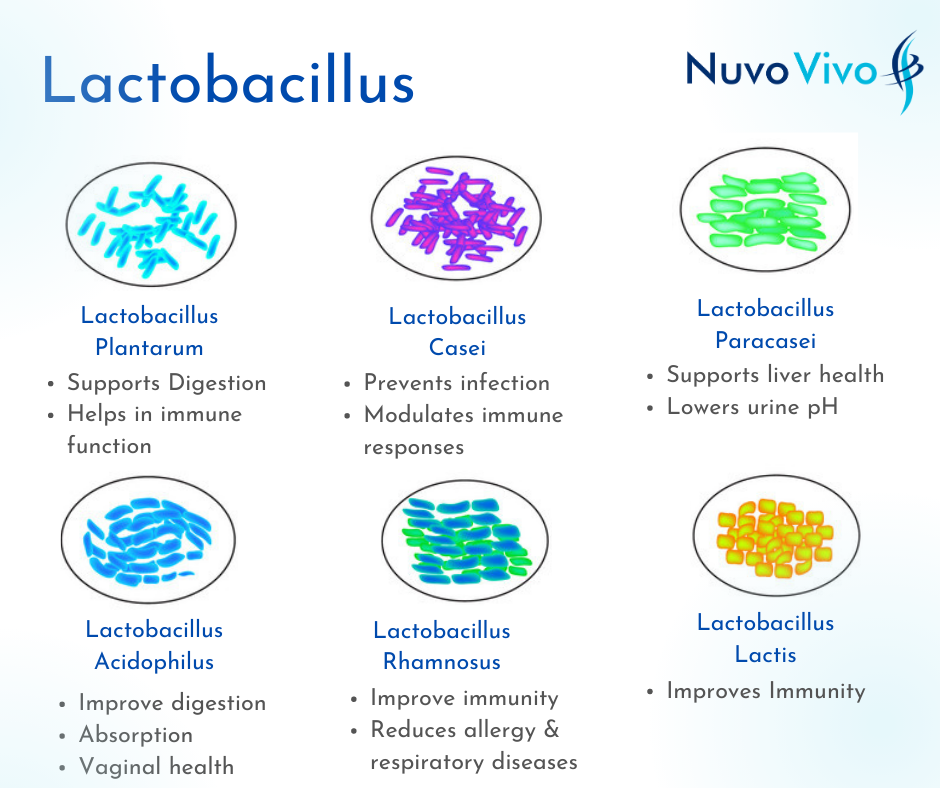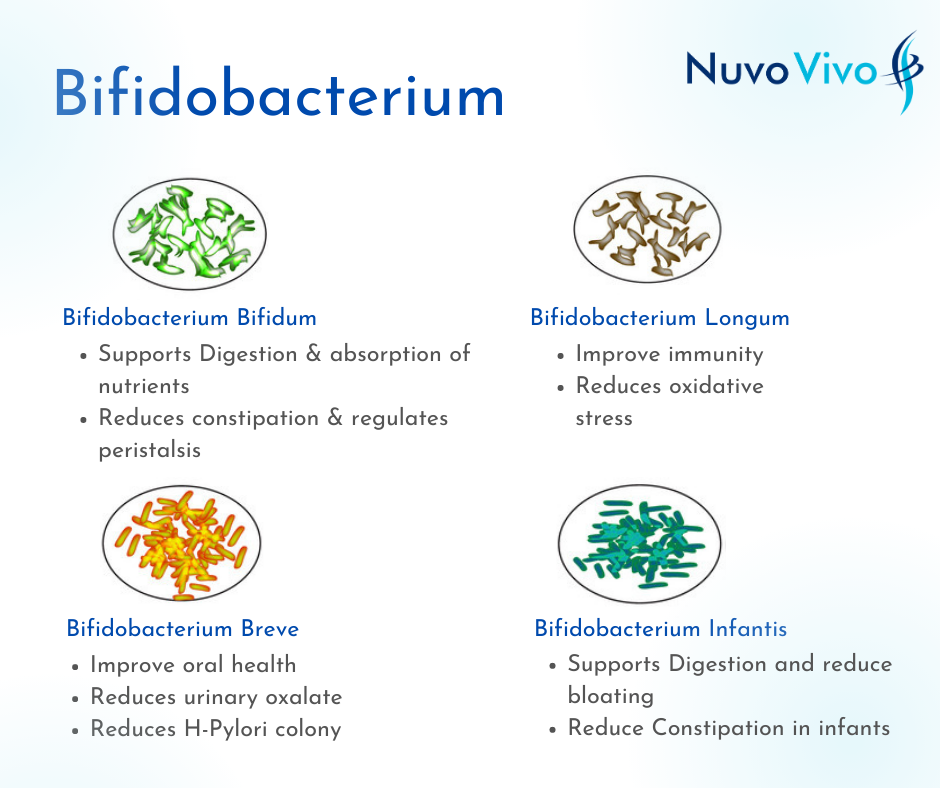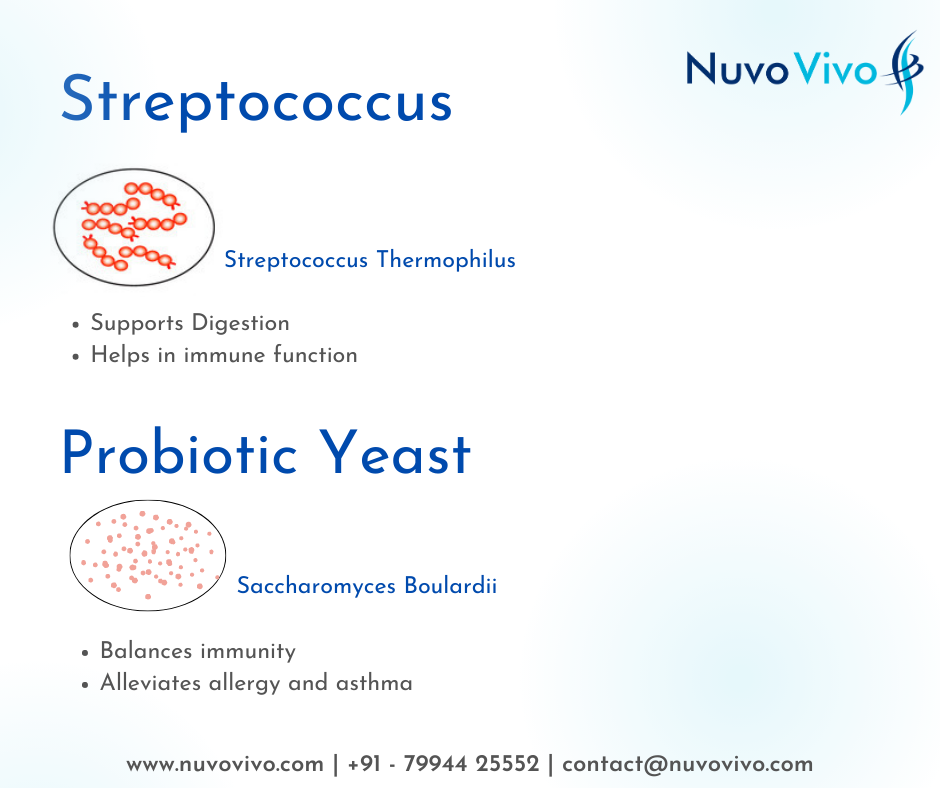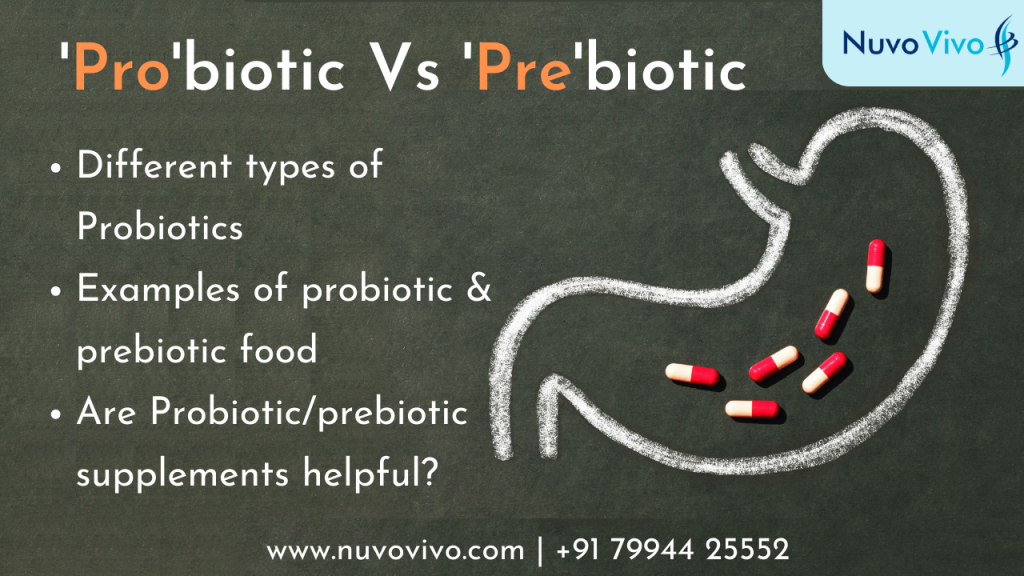Probiotics, prebiotics and gut health are becoming increasingly a buzzword in the health and wellness industry. What are probiotics? How is it different from prebiotics? Probiotics Vs prebiotic – what are their differences, different supplements?
In short and simple terms – probiotics refer to the beneficial bacteria in our gut, while prebiotics is the food (mainly fibre) that these bacteria feed on.
What are Probiotics?
Probiotics, also known as microbiota or microbiome are beneficial bacteria and yeast, seen mainly in the small intestine and large intestine. They play a very important role in the digestion and absorption of the food we eat. They are also involved in various other important functions including immune response, and synthesis of certain compounds like vit-K. They even impact our mood and cognitive function
There are many types and varieties of good bacteria. Not much information is currently known about the different species and strains of these bacteria. However, the benefits of some of the bacteria strains especially Lactobacillus and Bifidobacterium are well-studied and known.
A study conducted in 2013 about gut bacteria concluded that these microorganisms have a positive impact on the overall health of a person and can even impact the mood of a person.
What are some of the common probiotics?
Lactobacillus and Bifidobacterium are some of the most common probiotic bacteria. There are also probiotic yeasts such as saccharomyces boulardii that are helpful for our overall health
Lactobacillus
There are over 100 varieties of bacteria in this species. Lactobacillus Plantarum, Lactobacillus Casei, Lactobacillus Paracasei, Lactobacillus Acidophilus, Lactobacillus Rhamnosus and Lactobacillus Lactis are the most commonly used probiotics

Bifidobacterium
Among the 30+ known varieties of this species, the common strains used as probiotics are Bifidobacterium Bifidum, Bifidobacterium Longum, Bifidobacterium Breve, Bifidobacterium Infantis

Many of the bacteria under the genus streptococcus are pathogenic – especially streptococcus pneumoniae and streptococcus pyogenes and cause severe respiratory tract infections, cough and chest infections. However, the strain streptococcus thermophilus is a probiotic and has beneficial properties.
Among the yeasts category, saccharomyces boulardii is the commonly used probiotic yeast that modulates the immune system and also reduces allergy and asthma

Probiotic Food
Some of the foods that contain these beneficial bacteria are yogurt or curd, pickles, kambucha, sauerkraut. Many fermented foods also contain these beneficial bacteria.
Also Read: Including Curd in the diet
Probiotic Supplements
There are a variety of supplements available in the market in powder, pill and capsule form that are spores of probiotic bacteria. Each supplement brand/type may contain different quantities and types of bacteria. The efficacy of these supplements hence may vary greatly based on the type and quantity of bacteria in them.
Overdoing such supplements may cause stomach upset and skin rashes. Also, these supplements do not come with prebiotics (the fibre that these bacteria feed on). The efficacy of many of these probiotic pills is questionable as they have poor tolerance to stomach acids and bile salts (Read more on it here – Probiotic Supplements: Hope or Hype?)
What is prebiotics?
Prebiotics is the fibre that the probiotic bacteria feed on! Bananas, legumes, chicory root, garlic, onion, asparagus, artichoke etc are some of the examples that the probiotic bacteria feed on. The right mix of probiotics and prebiotics is essential for proper gut microbiome health.
Should you consume probiotics and prebiotic supplements?
Supplements can be useful in certain cases that involve severe diarrhoea or indigestion. It is important to note that each probiotic bacteria has its own role and choosing the right probiotic supplement to meet the need is hence important. Probiotic supplements are also suggested for patients who are on antibiotics to treat infections. However, most probiotic supplements do not reach past the acidic stomach and the bile acids. Overdoing probiotic or prebiotic supplements are equally bad. The kind of beneficial bacteria required for each person and each condition may also vary, hence blindly supplementing with probiotics may not be useful, and can perhaps be even harmful.
The World Gastroenterology Organisation has provided guidelines on how to use probiotics in their note dated Feb 2017 (Refer here)
About NuvoVivo
NuvoVivo is an online health and fitness company that helps its client manage lifestyle diseases. Our clients join us from across the world to manage or reverse conditions such as diabetes (and its complications), cardiovascular diseases (hypertension, high cholesterol), fatty liver, PCOS, thyroid disorders etc. We help them reduce their reliance on medications through structured and scientific lifestyle changes that suit their cultural habits and medical conditions. Our team provides a diet plan, exercise plans and the necessary follow-up and support in helping them achieve this
Reach for Consultations @ https://bit.ly/NVConsultation
More about NuvoVivo @ https://linktr.ee/nuvovivo
For more details – +917994999735

